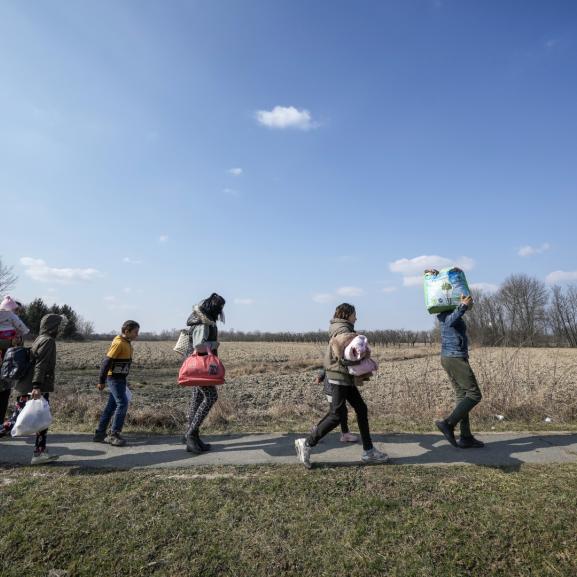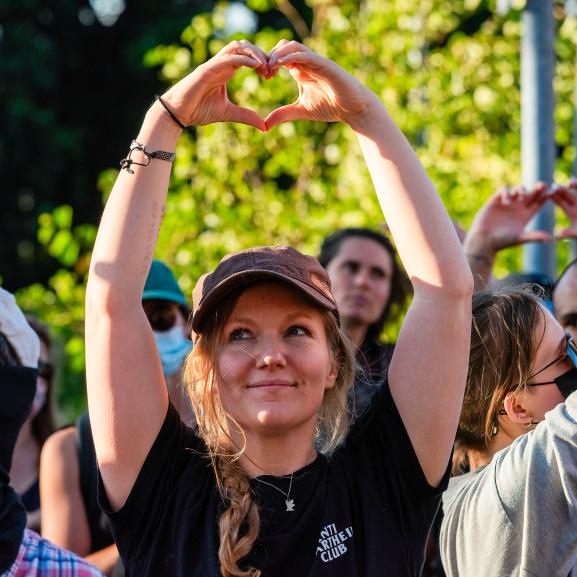Proving Torture: one year on
One year on from the launch of our 'Proving Torture' campaign, we look back at its achievements, and outline where we go next.
For many survivors, speaking about their experiences of torture can be a profoundly re-traumatising experience. This is made worse when evidence about their torture, including forensic documentation provided by independent medical experts, is incorrectly disregarded or misused by the Home Office’s asylum caseworkers. The pain of dredging up horrific memories is compounded by the frustration and confusion of being wrongly disbelieved, and the fear of being returned to the threat of further torture.
In 2016, our ‘Proving Torture’ report looked at 50 cases where survivors of torture had submitted expert medical evidence in support of their asylum applications. It found that in a large number of cases evidence of torture was misused or incorrectly dismissed, in contravention of the Home Office’s own policies, creating unnecessary trauma for survivors and avoidable expense for taxpayers.
In every case we looked at, caseworkers failed to apply the correct standard of proof when assessing each claim; 74% of the cases we researched involved caseworkers ignoring the findings of medical experts in favour of their own opinions; 76% of cases where the final result was known involved a grant of asylum following a successful legal appeal, compared to a standard overturn rate of 30%.
In response to these issues, we called for the Home Office to urgently improve the quality of its decision-making, and roll out better training for asylum caseworkers so that fewer mistakes are made. Our concerns were shared by large numbers of our supporters, and by politicians on all sides.
Our ‘Proving Torture’ report looked at 50 cases where survivors of torture had submitted expert medical evidence in support of their asylum applications. It found that in a large number of cases evidence of torture was misused or incorrectly dismissed, in contravention of the Home Office’s own policies, creating unnecessary trauma for survivors and avoidable expense for taxpayers.
In March 2017, Tania Mathias MP, alongside representatives from Freedom from Torture and Survivors Speak OUT, delivered a petition to the Home Office calling for a fairer asylum process: it had been signed by an astonishing 41,000 people from across the UK.
The same day, a backbench debate took place in the House of Commons during which the issues raised by ‘Proving Torture’ were highlighted by numerous MPs. Our public pressure helped secure a promise from the Immigration Minister that the Government would work with Freedom from Torture to address these problems: I can assure Members that we are committed to getting decisions right the first time and to working with expert organisations such as Freedom from Torture to ensure that survivors of torture get the support they need.
Since then, we’ve worked constructively with the Home Office to see that these welcome promises translate into real improvements in the asylum system. We’ve reviewed Home Office training materials, met with senior caseworkers, and contributed to a targeted Home Office review of sample medico-legal reports.
While these represent positive movement from the Home Office, improvements have been slow and not enough has been done. This means that we’ve also needed to keep up public pressure on the Government, to ensure that the fragile progress we’ve secured is not lost.
In August, we called for the Home Affairs Committee to set up an independent inquiry into the treatment of medical evidence in torture cases, and asked members of the public to email their MPs and ask for their support.
Between August and November, more than 6,000 people did so, leading to 80 different MPs supporting our call for an inquiry, or raising concerns with the Home Secretary or Immigration Minister.
We’ve submitted evidence to the Committee itself, and worked on building cross-party consensus around the need for an inquiry, including our hosting of an event at the Labour conference featuring Lord Alf Dubs and Joan Ryan MP.
This has laid the groundwork for the ‘Proving Torture’ campaign to continue into 2018: we’ll be working hard to see improved training delivered and proper quality assurance measures put in place by the Home Office over the next 12 months.
Over the last year, our ‘Proving Torture’ campaign has raised public awareness, and secured vital support from the government. In 2018, we’ll be working hard to ensure that this forward momentum is maintained by the Home Office, that the Home Affairs Committee holds them to account, and that this translates into tangible improvements for survivors of torture.







